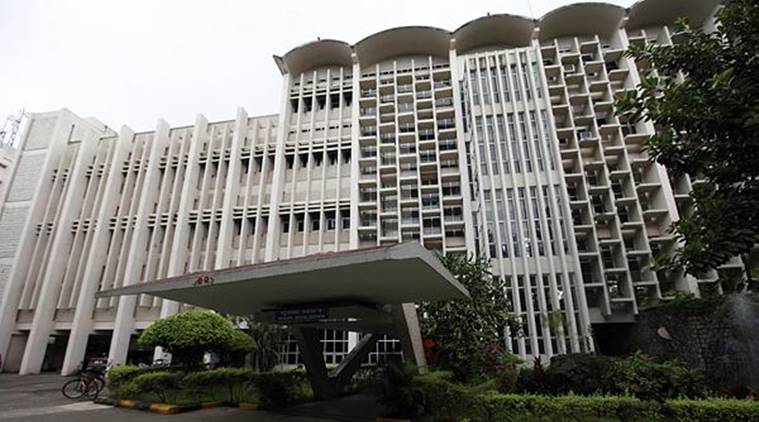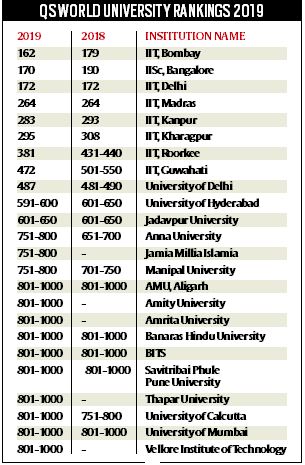 IIT-Bombay moved up 17 places (162 rank) this year to displace IIT-Delhi as India’s top ranked institution. (Express Archive)
IIT-Bombay moved up 17 places (162 rank) this year to displace IIT-Delhi as India’s top ranked institution. (Express Archive)
A YEAR after it broke into the top 200 club, IIT-Bombay has emerged as the country’s best university in the latest edition of the QS World University Rankings released late Wednesday night.
IIT-Bombay moved up 17 places (162 rank) this year to displace IIT-Delhi as India’s top ranked institution. The latter has also been overtaken by IISc-Bangalore, which gained 20 positions to 170 rank. However, despite the improvement, IISc has not managed to get back into the top 150 club, the position it held two years ago.
IIT-Delhi’s performance remained unchanged this time (172 position).IIT-Bombay’s rise in the QS Rankings has been dramatic. Last year, the institute improved its performance by 40 positions, from 219 rank in 2016 to 179 in 2017, to join its counterpart in Delhi and IISc-Bangalore in the top 200. Overall, six of the country’s eight ranked IITs/IISc improved their rank, with two (IIT-Delhi and IIT-Madras) remaining stable year-on-year.
The impressive performance by the Indian institutes of science technology has been attributed to their research impact. IISc-Bangalore, for instance, has world’s second-highest research impact per faculty member. IIT-Roorkee (89.5/100), IIT-Delhi (84.0/100), IIT-Kharagpur (76.8/100), and IIT-Kanpur (75.6/100) are others with impressive score for citations per faculty.

“Research produced by the faculty at the 19 (Indian) universities ranked in both the 2018 and 2019 rankings have yielded, cumulatively, 803,000 citations. This is 85,000 more than in 2018’s edition of the rankings, which is creditworthy. The rise is also responsible for India’s overall citations-per-faculty ratio rising from 46.90 in 2018 to 50.74 in 2019,” the press statement quotes Ben Sowter, research director at QS, as saying.
“However, the problem for Indian institutions and faculty is that the global citations-per-faculty rate has risen by more, reflecting the increasingly-intense international research environment. In 2018, the overall citations-per-faculty average was 51.74; it’s now 60.03 per faculty member. India’s research is demonstrably improving — but more slowly than its international competitors,” the statement further quotes Sowter.
Overall, 24 Indian universities are featured in the 2019 edition of the QS Ranking, of which seven have improved their performance, nine remain stable, five are newly to the rankings and three have lost ground this year.
Amrita University, Amity University, Jamia Millia Islamia, Thapar University, Vellore Institute of Technology are the five new entrants. Except for JMI, which has been placed in the 751-800 band, all the new entrants are in 801-1000 club.
Globally, Massachusetts Institute of Technology remains the world-leader for the seventh year in a row. Stanford University, Harvard University, Caltech and Oxford University follow, in that order.